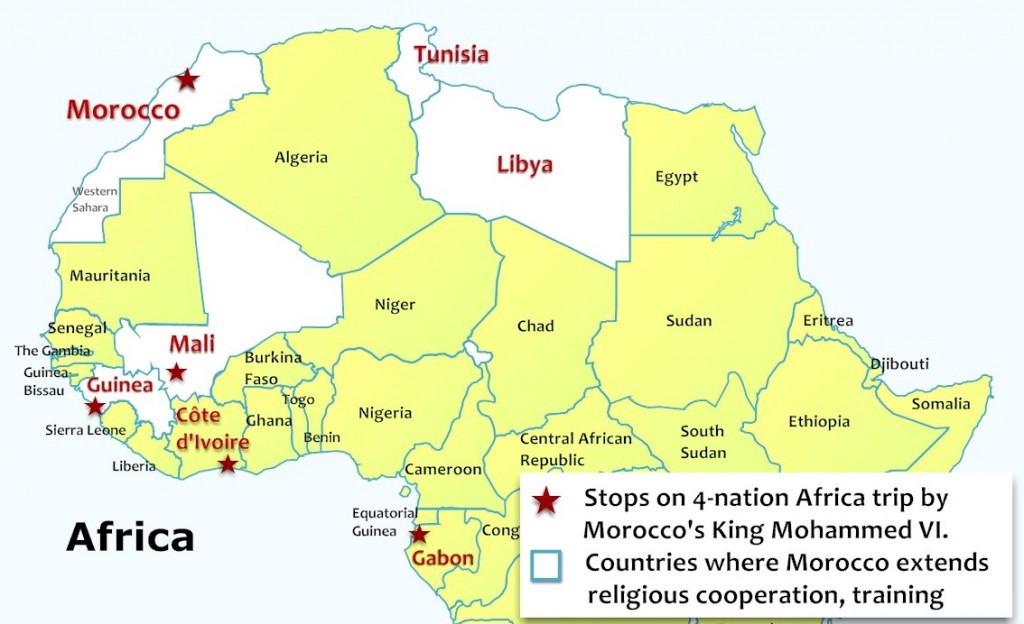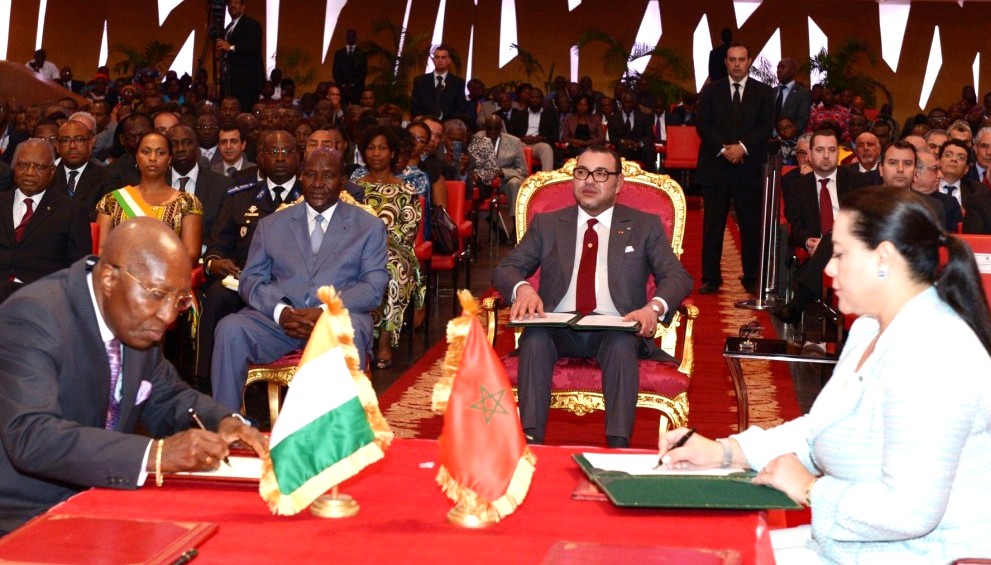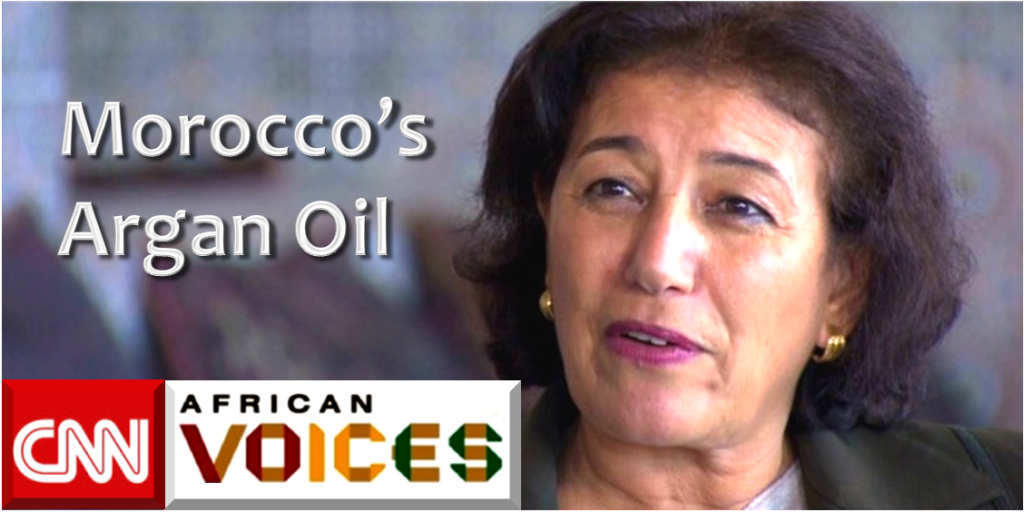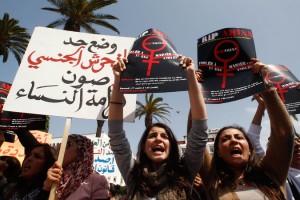![King Mohammed VI and Gabonese President, Ali Bongo Ondimba preside over signing 24 bilateral agreements in Libreville on Friday. Earlier in the week, the King and Guinean President Alpha Condé chaired the signing of 21 bilateral agreements on trade, agriculture, industry and vocational training. Photo: MAP]()
King Mohammed VI and Gabonese President, Ali Bongo Ondimba preside over signing 24 bilateral agreements in Libreville on Friday. Earlier in the week, the King and Guinean President Alpha Condé chaired the signing of 21 bilateral agreements on trade, agriculture, industry and vocational training. Photo: MAP
.
Maghreb Arab Press (Libreville, Gabon, March 7, 2014) — His Majesty King Mohammed VI and Gabonese President, Ali Bongo Ondimba, chaired, Friday in Libreville, the signing ceremony of 24 agreements. These agreements, which cover various sectors such as agriculture, health, housing, vocational training, finance and banking, new technologies, transport and tourism, aim at strengthening the legal framework for cooperation between the two countries.
These agreements reflect the concern of the leaders of the two countries to give a strong impetus to cooperation relations between the two countries, in the private and public sectors. They also fall in line with the royal policy to strengthen south-south cooperation.
Here is the list of these agreements:
An agreement in the field of agriculture, signed by Minister of Agriculture and Fisheries, Aziz Akhannouch, and Gabonese Minister of Agriculture, Livestock, Fisheries and Food Security, Luc Oyoubi.
An agreement between the Agricultural Development Agency (ADA) and the National Office of Rural Development (ONDER), signed by Aziz Akhannouch and Luke Oyoubi.
An agreement between the National Office of Food Safety products (ONSSA), and Gabon’s food safety agency (AGASA), signed by Aziz Akhannouch and Luke Oyoubi.
A cooperation agreement on merchant marine, signed by Minister of Infrastructure, Transport, and Logistics Aziz Rebbah, and Gabonese Minister of Transport, Paulette Mengue Me Owono.
A draft memorandum of understanding on maritime transport, signed by the Minister of Infrastructure, Transport and Logistics, and the Gabonese Minister of Transport.
A 2014-2016 tourism agreement, signed by Minister of Tourism, Lahcen Haddad, and Gabonese Minister of Mines, Industry, and Tourism, Régis Immongault.
A partnership agreement between the Moroccan National Tourism Office (ONMT), and the National Agency for the promotion of tourism and hospitality in Gabon, signed by Lahcen Haddad and CEO of ONMT Abderrafie Zouiten, and the Gabonese Minister of Mines, Industry, and Tourism.
A draft protocol on Industrial Cooperation, signed by Minister of Industry, Trade, Investment and Digital Economy, Moulay Hafid Elalamy, and the Gabonese Minister of Mines, Industry and Tourism.
A framework agreement on the implementation of a partnership program between MEDZ company, and the Gabonese Ministry of Agriculture, Livestock, Fisheries and Food Security, on the creation of new activities areas, mainly in the agri-business sector, signed by CEO of MEDZ, Omar El Yazghi, and Luc Oyoubi.
A Memorandum of Understanding on cooperation in industrial infrastructure between MEDZ companies and the Ministry in charge of Industry of the Gabonese Republic, signed by Omar El Yazghi, and the Gabonese Minister of Mines, industry, and tourism.
A cooperation agreement between Gabon’s Ministry of Labor, Employment and Vocational Training and Morocco’s Office of Vocational Training and Labour Promotion (OFPPT ), signed by Director General of OFPPT Larbi Bencheikh and Gabonese Minister of Labour , Employment and vocational Training Simon Ntoutoume Arises.
A partnership agreement between group of “Banque Centrale Populaire” (BCP) of Morocco and the Ministry of Economy, Employment and Sustainable Development of Gabon, signed by the CEO of the BCP Group Mohammed Benchaaboun and Gabonese Minister economy Christophe Akagha Mba.
A memorandum of Agreement between the National Office of Hydrocarbons and Mining (ONHYM) and the Equatorial Mining Company (SEM), on scientific and technical cooperation, signed by Director General of SEM Fabrice Nze-Békalé and General Director of ONHYM Amina Benkhadra.
A cooperation agreement project between the “Caisse de dépôt et de gestion” (CDG ) of Morocco and the “Caisse des Dépôts et Consignations” (CDC) of the Gabonese Republic, signed by the Director General of the CDG , Anas Houir Alami and Director General of the CDC Alain Ditona Moussavou.
A partnership agreement between the Gabonese Republic and Attijariwafa Bank Group (Plan Gabon Emergent ), signed by the CEO of the Attijariwafa Bank group Mohammed El Kettani and Gabon’s Ministers of Economy Christophe Akagha Mba and of mining, industry and tourism Régis Immongault.
An agreement on the construction of a real estate program on the site of Avorbam in Libreville, signed by Moroccan Mohammed El Kettani and Mohamed Bouzoubaa (Travaux Généraux de Construction de Casablanca/TGCC) and Gabonese Director General of the National Corporation for the state social housing construction (SNGCLS) Paul Mapessi.
A partnership agreement between the Gabonese Republic and the Attijariwafa Bank Group on market activities and debt consultancy signed by the CEO of Attijariwafa Bank and the Gabonese Minister of Economy Christophe Akagha Mba.
A cooperation agreement between the General Confederation of Morocco’s Enterprises (CGEM) and the Gabonese Confederation of Employers (CPG), signed by the President of the CGEM Miriem Bensalah Chaqroun and President of CPG Madleine Berre.
Palmeraie company contract for the construction of houses in the site of Nomba Owendo bridge, signed by President of Palmeraie Holding Company Hicham Berrada Sounni and CEO of SNGCLS Paul Mapessi.
A framework cooperation agreement between the Mohammedia Energy African Academy (ACAFI) and the Gabonese Refining Company (SOGARA), signed by Director General of ACAFI Mohamed Ghayate and CEO of SOGARA Pierre Reteno – N’Diaye.
A Memorandum of Understanding for the establishment of a national center for hybrid mail for Gabon’s post office, signed by CEO of GEMADEC Touhami Rabii and CEO of the Gabonese post office Alfred Mabika Mouyama.
An agreement on the allocation of a license to operate the network of 3rd and 4th generations (3G and 4G) in Gabon Telecom, signed by the CEO of Morocco Telecom Abdeslam Ahizoune and Gabonese Minister of the digital economy, communication and post office Ngoua Deme Pastor.
An agreement between the Universiapolis — International University of Agadir and Berthe and Jean Institute, signed by the founding president of the Universiapolis — International University of Agadir Aziz Bouslikhane and Arthur Lemani, member of the Supervisory Board of the Berthe and Jean Institute.
A tax, customs and social agreement between the Gabonese Republic and the company Ciments d’Afrique (CIMAF)-Gabon and the banking Consortium UGB and BGFI signed by Director General of CIMAF Anas Sefrioui, CEO of Gabonese bank Union and CEO of Attijariwafa Bank group and Gabonese Minister of Economy Christophe Akagha Mba and CEO BGFI Bank Henri Claude Oyima.
The post Moroccan King, Gabonese President Chair Signing of 24 Bilateral Agreements – MAP appeared first on Morocco On The Move.


 The indigenous people of North Africa, known as Berbers or Amazigh, have been oppressed by regimes viewing their language and culture as a threat to Arab-Islamic identity. The 2011 uprisings galvanized the campaign for equal rights, with musicians in the forefront. It’s another test for nations struggling to reconcile the forces, from political Islam to youth activism, unleashed by the Arab Spring. “The Amazigh have managed to raise serious questions about the nature of the state and the community,” said Bruce Maddy-Weitzman, author of The Berber Identity Movement and the Challenge to North African States. “These are fundamental issues that speak to the ability of these states to create viable societies that can function in the modern world.” […]
The indigenous people of North Africa, known as Berbers or Amazigh, have been oppressed by regimes viewing their language and culture as a threat to Arab-Islamic identity. The 2011 uprisings galvanized the campaign for equal rights, with musicians in the forefront. It’s another test for nations struggling to reconcile the forces, from political Islam to youth activism, unleashed by the Arab Spring. “The Amazigh have managed to raise serious questions about the nature of the state and the community,” said Bruce Maddy-Weitzman, author of The Berber Identity Movement and the Challenge to North African States. “These are fundamental issues that speak to the ability of these states to create viable societies that can function in the modern world.” […]

 He emphasized the need for more cooperation and partnerships across the continent, as well as private-sector investment, to spur development.
He emphasized the need for more cooperation and partnerships across the continent, as well as private-sector investment, to spur development.






 “Diplomacy used to serve the strengthening of political relations. Nowadays, the economic dimension comes first, and it forms the basis of diplomatic relations,” the King told a meeting of around 500 Ivorian and Moroccan business leaders in Abidjan on February 24. Mohammed VI’s record in the past two weeks would put the best sales reps to shame: he has signed an average of 20 trade agreements in each of the three countries he has visited so far and opened Moroccan-contracted projects ranging from social housing to fishing ports, fibre optic links and cement factories. “At a time when Africa is seen as the next business frontier and Europe and the US are hit by the crisis, Morocco is pushing its banks and free-trade agreements to open commerce with countries forming a 250 million-inhabitant market,” said Bakary Sambe, a political scientist at Gaston Berger University in Saint-Louis, Senegal and the author of a book on Morocco’s diplomacy in sub-Saharan Africa. “Some Moroccan companies now beat French ones for tenders in the region, thanks to such lobbying,” he told FRANCE 24.
“Diplomacy used to serve the strengthening of political relations. Nowadays, the economic dimension comes first, and it forms the basis of diplomatic relations,” the King told a meeting of around 500 Ivorian and Moroccan business leaders in Abidjan on February 24. Mohammed VI’s record in the past two weeks would put the best sales reps to shame: he has signed an average of 20 trade agreements in each of the three countries he has visited so far and opened Moroccan-contracted projects ranging from social housing to fishing ports, fibre optic links and cement factories. “At a time when Africa is seen as the next business frontier and Europe and the US are hit by the crisis, Morocco is pushing its banks and free-trade agreements to open commerce with countries forming a 250 million-inhabitant market,” said Bakary Sambe, a political scientist at Gaston Berger University in Saint-Louis, Senegal and the author of a book on Morocco’s diplomacy in sub-Saharan Africa. “Some Moroccan companies now beat French ones for tenders in the region, thanks to such lobbying,” he told FRANCE 24.


 Magharebia met with Boubekeur in Casablanca to learn more about what she calls the “transformation” of salafist and Islamist movements in the Maghreb.
Magharebia met with Boubekeur in Casablanca to learn more about what she calls the “transformation” of salafist and Islamist movements in the Maghreb.
![New York City-based author and broadcaster writes that his "listenership has begun to spread beyond [Morocco's] borders, moreover, Risalat New York presents a case in point of how the broader Moroccan policies that keep me on the air can help spread tolerance in other places where Arabic is spoken, too." Huffington Post](http://moroccoonthemove.com/wp-content/uploads/2014/03/photo-braude.png)

 My show has the distinction of being the only radio program hosted by a Jew on Arab airwaves that doesn’t originate in Israel. But more than three years after the broadcast debuted, my Muslim audience now finds it ordinary, rather than aberrant, to hear a Jewish voice opine on Arab affairs in their mother tongue. In numerous Arab countries, such a situation would be revolutionary—but in Morocco, where the leadership has proactively nurtured Muslim-Jewish understanding for years, it’s merely one step forward among many. Given that the listenership has begun to spread beyond the kingdom’s borders, moreover, Risalat New York presents a case in point of how the broader Moroccan policies that keep me on the air can help spread tolerance in other places where Arabic is spoken, too.
My show has the distinction of being the only radio program hosted by a Jew on Arab airwaves that doesn’t originate in Israel. But more than three years after the broadcast debuted, my Muslim audience now finds it ordinary, rather than aberrant, to hear a Jewish voice opine on Arab affairs in their mother tongue. In numerous Arab countries, such a situation would be revolutionary—but in Morocco, where the leadership has proactively nurtured Muslim-Jewish understanding for years, it’s merely one step forward among many. Given that the listenership has begun to spread beyond the kingdom’s borders, moreover, Risalat New York presents a case in point of how the broader Moroccan policies that keep me on the air can help spread tolerance in other places where Arabic is spoken, too.
 “The integration of the gender equality is reflected in real actions, measures and provisions through strategies, programs and action plans, and on several levels,” she said on the occasion of the celebration of International Women’s Day by the Ministry of Foreign Affairs and Cooperation and the United Nations in Morocco.
“The integration of the gender equality is reflected in real actions, measures and provisions through strategies, programs and action plans, and on several levels,” she said on the occasion of the celebration of International Women’s Day by the Ministry of Foreign Affairs and Cooperation and the United Nations in Morocco.
 For her part, Leila Rhiwi, Representative of UN Women in the Maghreb, said the organization of this event, on the occasion of the International Women’s Day, reflects the strong determination of Morocco for the promotion and protection of women’s human rights, a commitment reaffirmed in 2011 with the adoption of a Constitution that can be considered a pioneer in the region in terms of gender equality.
For her part, Leila Rhiwi, Representative of UN Women in the Maghreb, said the organization of this event, on the occasion of the International Women’s Day, reflects the strong determination of Morocco for the promotion and protection of women’s human rights, a commitment reaffirmed in 2011 with the adoption of a Constitution that can be considered a pioneer in the region in terms of gender equality.




 The two countries are also bound by strong historical and religious ties. Besides these very strong economic, cultural and spiritual ties, Morocco and Gabon have established a political partnership that defies time and men. Gabon has always been keen on preserving its firm political ties with the North African kingdom, and Morocco, under the reign of the late Mohammed V, the late Hassan II or under the reign of King Mohammed VI has always endeavored to upgrade its privileged partnership with the West African country. Many Moroccan companies have also established in recent years in sub-Saharan Africa, in the image of Morocco Telecom, majority shareholder of Gabon Telecom.
The two countries are also bound by strong historical and religious ties. Besides these very strong economic, cultural and spiritual ties, Morocco and Gabon have established a political partnership that defies time and men. Gabon has always been keen on preserving its firm political ties with the North African kingdom, and Morocco, under the reign of the late Mohammed V, the late Hassan II or under the reign of King Mohammed VI has always endeavored to upgrade its privileged partnership with the West African country. Many Moroccan companies have also established in recent years in sub-Saharan Africa, in the image of Morocco Telecom, majority shareholder of Gabon Telecom.







 A little under halfway into the journey the N8 drops south towards Agadir and the route to Essaouira continues on the slower, dustier route régionale 207. Somewhere between Ounagha and the Atlantic coast, trees begin to appear; solitary sentinels, then small groves giving way to more substantial plantings. These are argan trees (Argania spinosa); distinctively squat with a wide spreading canopy of small, leathery leaves interspersed with fearsome looking spines. Argania spinosa is an ancient species; the lineage goes back to the Tertiary era, between 65m and 1.8m years ago. Endemic to the southwest of Morocco and the Tindouf region of Algeria, they thrive – perhaps a more accurate description is tenaciously survive – in calcareous soils in these semi-deserts. Despite the climatic challenges of their home range, argan trees manage to live for as much as 250 years.
A little under halfway into the journey the N8 drops south towards Agadir and the route to Essaouira continues on the slower, dustier route régionale 207. Somewhere between Ounagha and the Atlantic coast, trees begin to appear; solitary sentinels, then small groves giving way to more substantial plantings. These are argan trees (Argania spinosa); distinctively squat with a wide spreading canopy of small, leathery leaves interspersed with fearsome looking spines. Argania spinosa is an ancient species; the lineage goes back to the Tertiary era, between 65m and 1.8m years ago. Endemic to the southwest of Morocco and the Tindouf region of Algeria, they thrive – perhaps a more accurate description is tenaciously survive – in calcareous soils in these semi-deserts. Despite the climatic challenges of their home range, argan trees manage to live for as much as 250 years.

 And then you plunge through one of the gateways and the noise, the colors and the smells simply swallow you whole. There are donkeys pulling carts of bananas, tourists in calèches (horse-drawn carriages), young Arab men weaving past on motorised deathtraps. And all this before you’ve seen the snake charmers, the monkeys and the fortune tellers at the Djemaa el Fna – the main square. This is not just another country, it’s another continent and there really is nowhere else that’s so far away and so near at the same time.
And then you plunge through one of the gateways and the noise, the colors and the smells simply swallow you whole. There are donkeys pulling carts of bananas, tourists in calèches (horse-drawn carriages), young Arab men weaving past on motorised deathtraps. And all this before you’ve seen the snake charmers, the monkeys and the fortune tellers at the Djemaa el Fna – the main square. This is not just another country, it’s another continent and there really is nowhere else that’s so far away and so near at the same time.








 After several years of flat growth, Morocco on Tuesday reported a 7.2 percent increase in arrivals since 2012. Morocco, whose beaches, exotic cities and pristine mountains are popular among Europeans, relies on tourism for 10 percent of its GDP, the second-largest contributor after agriculture.
After several years of flat growth, Morocco on Tuesday reported a 7.2 percent increase in arrivals since 2012. Morocco, whose beaches, exotic cities and pristine mountains are popular among Europeans, relies on tourism for 10 percent of its GDP, the second-largest contributor after agriculture.







